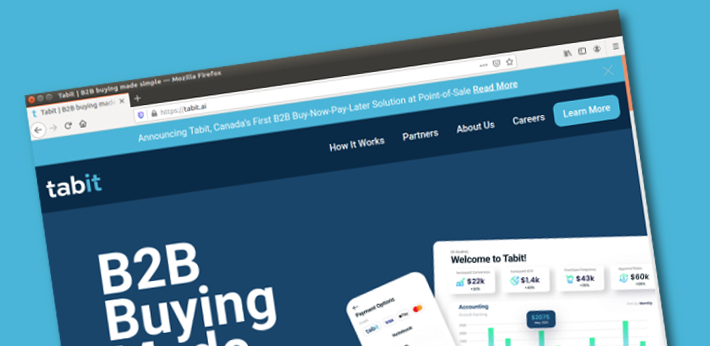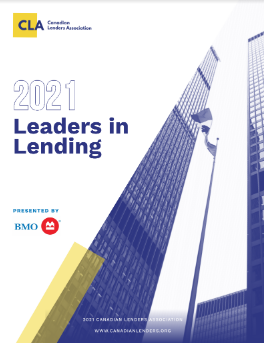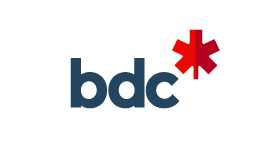Canada
Why is Canadian Fintech Sizzling?
March 1, 2022 Downtown Montreal
Downtown MontrealIn recent weeks, Canadian fintech companies have made major splashes in the world market. In the sphere of acquisitions, lending, funding, products and even digital assets, multiple Canadian cities and the companies that call them home have gained a reputation for being a focal point in fintech progression. Cities like Vancouver, Toronto, and Montreal have become start-up hotspots for companies looking to ride the wave of Canadian financial innovation.
In the country’s most internationally impacting financial move, Montreal-based payments company Mobeewave’s acquisition by Apple is set to come to fruition, as the company is about to take their phone-to-POS mobile merchant terminal live around the world. Apple acquired Mobeewave last year for $100M and will use the company’s technology to allow merchants and customers to conduct payment transactions by touching phones.
Other companies of note are Hopper, the Montreal-based mobile travel agency that is embedding ‘travel fintech’ into their products. Things like insurance, price drop guarantees, and price freezing are now offered on the Hopper app, which is now valued over $5B after an influx of capital from Brookfield Asset Management.
BNPL giant Klarna has also made moves in the north, opening offices in both British Columbia and Quebec in an attempt to further their expansion into the Canadian market. In a recent interview, the company’s CEO said their research had found at least half of Canadian shoppers were a prime contender to get the best out of Klarna’s services.
So this all begs the question- Why is Canada so ripe for fintech?
“We’re a fast growing market with a strong immigration policy, cheaper technical talent, and strong government hiring incentives,” said Tal Schwartz, Senior Product Manager at Nomis Solutions. “Secondly, we’ve been successful at ‘Canadianizing’ global solutions. For example Brex and Ramp have no client presence here, but Caary and Float have successfully built homegrown solutions that fill a local need.”
Schwartz spoke further on Canadian companies putting their own improvements on established products, making ‘Canadianized’ versions of fintech products and ideas. “Revolut tried entering Canada with little success,” said Schwartz. “Now two years later Koho, Wealthsimple and Neo have cornered the digital banking market from within.”
 Even Canada’s legacy financial institutions have been challenged by fintech, as the nation with the notorious ‘Big Five Banks’ has seen neobanks creeping towards the top as the highest used, as the neobank dubbed Equitable Bank is now Canada’s 7th largest after acquiring Saskatoon-based Concentra Bank earlier this month. Equitable has newly grown its mortgage portfolio thanks to its partnership with Canadian fintech Nesto, a mortgage broker marketplace. The move also gives Equitable a footing in the credit union space, as Concentra provides treasury and trust services to over 200 credit unions in Canada.
Even Canada’s legacy financial institutions have been challenged by fintech, as the nation with the notorious ‘Big Five Banks’ has seen neobanks creeping towards the top as the highest used, as the neobank dubbed Equitable Bank is now Canada’s 7th largest after acquiring Saskatoon-based Concentra Bank earlier this month. Equitable has newly grown its mortgage portfolio thanks to its partnership with Canadian fintech Nesto, a mortgage broker marketplace. The move also gives Equitable a footing in the credit union space, as Concentra provides treasury and trust services to over 200 credit unions in Canada.
Even the metaverse has taken interest in what Canadian finance can offer it. Terra Zero, a Canadian metaverse real estate platform is now offering mortgages on Decentraland for those looking to purchase property in the trendiest space on the internet.
Canadian finance has made a big leap since a year ago. Pandemic-induced restrictions decimated the country’s financial fortitude, and international competition has never been more intense. Like Schwartz mentioned, it’s the ability for Canadian companies to innovate the innovators, using ideas stemming from other products to “Canadify’ fintech, that has surpassed their industry past the point of survival.
“I think Canadian fintech is hot right now because in Canada, we don’t have the alphabet-soup-level of federal bodies as the U.S. does, primarily leaving enforcement to smaller, more personal, more flexible provincial organizations,” said Nick Chandi, CEO of Forward AI, a Vancouver-based fintech. “In addition, Canada is set on Open Banking, with the Advisory Committee’s final report published in August 2021 and follow-up survey showing that the majority of the Canadian financial services industry wants to move ahead on implementing open banking in Canada ASAP.”
On top of financial friendly politics, Chandi believes it’s Canada’s concise population centers that breed collaboration and innovation. “It’s also a smaller community,” Chandi said. “With most fintech workers living in one of a few key cities, it’s easy to network and make things happen.”
Why a Small Business Finance Company Brought BNPL to B2B Transactions
February 27, 2022 Tabit, a subsidiary of Vancouver-based Merchant Growth, has rethought business financing by integrating a newly conceived consumer-based product, (Buy Now Pay Later) BNPL to the B2B transaction world. As a decade-old small business finance company, Merchant Growth’s launch of Tabit shows how alternative financiers from across North America are trying to find new financial products that serve tomorrow’s merchants.
Tabit, a subsidiary of Vancouver-based Merchant Growth, has rethought business financing by integrating a newly conceived consumer-based product, (Buy Now Pay Later) BNPL to the B2B transaction world. As a decade-old small business finance company, Merchant Growth’s launch of Tabit shows how alternative financiers from across North America are trying to find new financial products that serve tomorrow’s merchants.
According to David Gens, CEO and President of Merchant Growth, Merchant Growth’s steady business provides Tabit with the infrastructure, manpower, and underwriting capabilities it needs to develop this kind of unique financial product.
“At a Money 20/20 conference many years ago, a speaker made a comment that resonated with me,” said Gens, when asked about the origin ideas in Tabit’s development. “That speaker, I forgot who it was now, said that small business financial services share more similarities with consumer offerings than they do with the mid-market and commercial space. In other words, innovations that become successful in the consumer space end up translating over to small business.
“Ever since then I’ve taken that to heart and as we watched the explosive growth in the consumer BNPL space,” Gens continued. “We were constantly thinking about whether the timing is right to translate this over to B2B transactions.”
Gens also gave credit to his industry awareness, saying that he saw those on the international stage having similar ideas.
“In the past 12 to 24 months, we’ve also seen a number of announcements internationally of companies raising VC funds to do just this, but nobody has yet announced in Canada,” he said. “In our strategic planning meetings, we looked closely at our company’s capabilities and determined that we are well suited to build this.”
Tabit’s perceived advantage is that they can reinvent the lending space by not wrapping a financial product in a digital service like other techy lenders, but instead use relationships between businesses and their vendors in order to keep their cost of acquiring customers down, thus having the cost of financing cheaper for the borrower.

“Tabit is our answer for how to reach as many small businesses as possible in an economically sustainable way, therefore delivering a cost-competitive product,” said Gens. “That is by leveraging the relationships that B2B sellers have with their buyers, [and] it’s a great way to scale the delivery of SMB credit and provide significantly greater access to capital at competitive rates.”
Gens also touched on the idea of the need for new financial products to compete with innovation in lending. Despite recognizing the existence of digitally native merchants and the desire to incorporate tech into a financial product, Gens doesn’t seem to think there is a need to overhaul the market with experimental ideas.
“I think that the launch of Tabit is an embodiment of the trend of digital consumer experiences proliferating in the small business and B2B space,” said Gens. “[It] also speaks to the growing influence of digitally savvy and millennial business owners on SMB fintech offerings. Credit is fundamentally an old product that’s been around for thousands of years. It’s the way in which it is delivered and how and when that will continue to evolve.”
“It is also becoming increasingly dynamic and fluid with real-time data and machine learning models, creating unprecedented convenience as well as accuracy in pricing of risk, which drives accessibility,” Gens continued. “Innovation should remain focused on minimizing the friction and “number of clicks” for users of credit, freeing up time to be spent on other valuable activities.”
At the consumer level, BNPL has faced some scrutiny by both users and regulators. Credit being available at a moment’s whim at the point of sale, with limited time to decide on the consequences of taking on a financial product has had many people question the ethics and long term outlook on it. Gens however, is not one of those people.
“I struggle to see how low-interest point-of-sale financing can be considered predatory,” said Gens. “Such a product eases financial burdens, it does not increase them. Particularly in the B2B space where such an offering helps accelerate growth for small businesses, I am optimistic that regulators will perceive B2B BNPL payment solutions favorably.
Could Siri, Alexa, and Video be the New Frontier for Lenders?
January 25, 2022 The annual fintech study published by Smarter Loans revealed that 25% of respondents had used either Alexa, Siri, or another voice search to find information about financial services.
The annual fintech study published by Smarter Loans revealed that 25% of respondents had used either Alexa, Siri, or another voice search to find information about financial services.
Voice devices, it appears, are not only getting better at answering regular questions, but users are also getting more comfortable even asking them in the first place.
“Alexa, what is deBanked?” for example, returns an accurate reply despite our not having made any efforts to opt-in to the device’s knowledge base. Alexa just knows.
So why bother performing an old-fashioned Google search? Turns out, it’s becoming less common to do. Only 57% of respondents said they discovered the lender they applied with through online search. 13% said they discovered them through social media. 8% came from a friend’s recommendation. 15% found them through a well-regarded “Loan & Financial Directory” (Smarter Loans, who authored the study).
Once on a lender website, users had questions. 27% read online articles and reports, 37% read reviews, 16% called the company, and 9% consulted a friend or family member.
60% of respondents said informative videos about a company or its products would increase their confidence in that company. That could be key since 66% of respondents said that they researched more than 3 lenders before applying for a loan.
All of the respondents resided in Canada. 92% of respondents also said that they were satisfied or very satisfied with their loan provider.
Canada is Looking Forward to Open Banking
October 4, 2021 “It’s a fairly big deal,” said Tal Schwartz, Senior Advisor to the Canadian Lenders Association, when discussing the Canadian government’s renewed interest in alternative lenders after the recent Canadian election. As potential government officials from both parties discussed ideas about open banking in their election campaigns, such a conversation had been quelled by the “Big Five” Canadian banks— until now.
“It’s a fairly big deal,” said Tal Schwartz, Senior Advisor to the Canadian Lenders Association, when discussing the Canadian government’s renewed interest in alternative lenders after the recent Canadian election. As potential government officials from both parties discussed ideas about open banking in their election campaigns, such a conversation had been quelled by the “Big Five” Canadian banks— until now.
“The closer we get to some kind of entrenched regulatory framework, the better positions fintechs will be in to actually compete, get access to financial data, and raise money in an environment where there is regulatory certainty,” said Schwartz.
In August, the Canadian department of Finance welcomed a Final Report from the Advisory Committee on Open Banking that showcased a plan to modernize the Canadian financial regulatory system, with open banking and fintech in mind.
“Consumer-driven finance, or open banking, is already part of Canadians’ lives,” said Chrystia Freeland, Canada’s Deputy Prime Minister and Minister of Finance, in the report.
“Many use digital services every day to manage their money, to budget for expenses, and to make investments. Working towards a regulated, made-in-Canada system will make sure that we continue to enjoy a strong, stable, and innovative financial sector that is globally competitive, promotes consumer choice, prioritizes data privacy, and contributes to economic growth,” Freeland continued.
Schwartz said that the traditional oligopolistic structure of Canadian banking can offer advantages in times of financial crisis, but not when the government is shelling out money to help businesses during pandemic-related shutdowns.
 “The reality was, if you’re a small business, you don’t have a credit relationship with a big bank, the only credit relationship you have is with an alternate lender,” said Schwartz. “By distributing money through big banks, in one sense, you’re not servicing customers the way they want to be served, and you’re cutting oxygen to a flourishing part of the innovation economy in Canada.”
“The reality was, if you’re a small business, you don’t have a credit relationship with a big bank, the only credit relationship you have is with an alternate lender,” said Schwartz. “By distributing money through big banks, in one sense, you’re not servicing customers the way they want to be served, and you’re cutting oxygen to a flourishing part of the innovation economy in Canada.”
Unlike in the United States, the Canadian government gave exclusive access of allocation to pandemic-induced federal assistance loans to the Big Five banks, leaving small business lenders relatively out to dry during that time. When asked about what issues he would like to see the new administration tackle first when it comes to alternative lenders, Schwartz mentioned the allocation of this type of money moving forward.
Other institutions outside of big banking in Canada are making strides in their effort to compete. Fintech giant Stripe announced hiring sprees for their new Toronto office last Thursday. Then there’s Nuula, a startup that aims to build a user-centric financial super app, announcing $120M in funding in early September.
To reach its full potential, Canadian fintech companies need the access to more data. The report recognizes the acknowledgement of the necessity this data is to fintech companies. “The scope of Canada’s open banking system in its initial phase should include data that is currently available to consumers and small business through their online banking applications,” it says. “Financial institutions should be allowed to exclude derived data – described as data enhanced by financial institutions to provide additional value to their consumers, such as internal credit risk assessments” the report reads.
“Historically, there hasn’t been very tech friendly or [Big Bank] challenger friendly regulations,” Schwartz said. “This is really the first time we’ve seen the political parties even mention issues of open banking and saying this will be a priority for our next government.”
“This has given the industry a lot of hope,” said Schwartz.
Loans Canada Announces Online Lending Survey Results
August 9, 2021 Loans Canada published their annual online lending survey results on Monday morning. The company polled online personal loan applicants throughout Canada.
Loans Canada published their annual online lending survey results on Monday morning. The company polled online personal loan applicants throughout Canada.
Among the results, several statistics stand out.
40.8% of respondents said that they felt “pressured” to fill their loan application quickly, a compelling counter to the mainstream narrative that borrowers are demanding speed.
44.8% of respondents said they felt “pressured” to accept credit building services even though 85.3% of applicants that had been rejected for an online personal loan said they had been rejected on the basis that their credit score was too low.
Loans Canada noted large swaths of satisfaction and dissatisfaction alike, finding that applicants that have never been able to get approved for an online personal loan were highly likely to rank the online borrowing experience as “very bad” while those that have been approved were highly likely to rank the online borrowing experience as “good” or “very good.”
How to Think About Credit Invisibility
July 29, 2021Authored by:
Lily Cook, Researcher at Canadian Lenders Association
Tal Schwartz, Senior Advisor at Canadian Lenders Association
 Recent research by PERC has highlighted the issue of credit invisibility in Canada, defined as “persons with either no account payment history in their credit report (referred to as “no files”) or fewer than three accounts in their credit report (referred to as “thin files);”
Recent research by PERC has highlighted the issue of credit invisibility in Canada, defined as “persons with either no account payment history in their credit report (referred to as “no files”) or fewer than three accounts in their credit report (referred to as “thin files);”
In Canada, credit scores are calculated using payment history, outstanding debt, credit account history, recent inquiries and types of credit. However, according to research from Cornerstone Advisors, the ‘on-ramps’ to being credit visible are limited and come with challenges. The most common paths are:
- Credit cards:
- Collections: Collections as a point of entry into a credit system immediately sets the consumer at a disadvantage, since the first thing to identify them is a negative characteristic.
In general, Canadians under 25 tend to use credit cards at far lower rates. Those in that age group who do have a credit history have the highest percentage of credit scores below 520, according to Equifax Canada.
The rate and impact of credit invisibility in Canada is significant:
- 35.3% of Canadians are credit invisible vs. 19.3% in the US.
- the issue disproportionately affects immigrants, minority communities or younger individuals.
How are fintechs addressing this?
1. Access to alternative data
Canadian data aggregators provide lenders with access to non-traditional credit information that advanced firms can apply ML to in order to better adjudicate credit.
- Open banking data providers like Flinks and Inverite provide consumer transaction history information that allows fintech lenders to underwrite credit invisibles based on their cash flow instead of their credit score.
- Commercial data providers like Forward AI, Boss and Railz pull financial data from accounting systems, payroll, and point of sale terminals in order to give lenders a more fulsome picture of a businesses health.
2. Make alternative data mainstream
PERC Canada recommended that the CFPB explicitly include non-financial institutions in their definition of a ‘creditor’ in order to report positive payment data to credit bureaus. Credit reports that could ‘reward’ customers for paying telecommunications bills on time, for example, could make the credit system more forgiving in the future.
- Billi, for example, a Canadian fintech allows users to integrate on-time payments for their Amazon Prime and Netflix accounts into their credit reports in order to improve them.
Canadian credit bureaus have also taken active steps to being more inclusive of alternative data. A prime (no pun intended) example is Landlord Credit Bureau’s (LCB) and Equifax’s partnership to allow rent payments to count towards credit scores.
- Both as a way to reduce risk for landlords and give tenants a leg up in the market, this shared use of alternative data is “ninety-plus per cent….positive in nature, so overwhelmingly landlords use this to reward tenants,” LCB’s CEO, Zachary Killam said.
3. Create a better on ramp to credit building
Credit building loans can unlock credit for those with minimal histories or challenging track records. These are installment loans that only pay out once the customer has paid them off, and are offered by fintechs like as Spring, Marble and Refresh.
Essentially reverse loans, the reverse structure protects the lender, in the event that the customer doesn’t make all their payments. Over the course of the loan term, the customer’s payments are reported to the credit bureaus. Borrowell, which recently acquired Refresh’s credit building loan portfolio, is now one of the largest providers of this service in Canada.
So what’s the solution?
In order to drive meaningful change on the issue of credit invisibility, fintechs must continue to enable lenders to challenge the limitations of the credit system – by improving access to alternative data, normalizing its use and building better on-ramps to the credit system than collections and credit cards.
Credit invisibility is caused largely by structural issues within Canada’s data markets, but fintechs are starting to fill these gaps.
Selling Finance Door-to-Door During Covid
April 9, 2021 This week, lockdown returned to Ontario, Canada, due to the third wave of Covid cases. On April 3rd, the Premier issued a stay-at-home order, putting 14 million Canadians back behind closed doors. Based in Ontario, Canadian Financial is a one-stop alternative and traditional funding shop that still champions door-to-door sales and the lockdown has sidelined them for the third time.
This week, lockdown returned to Ontario, Canada, due to the third wave of Covid cases. On April 3rd, the Premier issued a stay-at-home order, putting 14 million Canadians back behind closed doors. Based in Ontario, Canadian Financial is a one-stop alternative and traditional funding shop that still champions door-to-door sales and the lockdown has sidelined them for the third time.
“We just went back into lockdown. The whole province, everything just shut down,” CEO Patrick Labreche said. “We were getting 20 to 30 new cases a day, and then it jumped to like 200 a day.”
Meanwhile, 110 miles down south at deBanked, de Blasio announced NYC public beaches would be opening up by Memorial Day. Because of the wide range of government shutdowns this past year, Labreche said it is hard to admit to some that his business is booming.
“I was having a conversation with a guy who does payment processing, he makes residuals on his customers, and so his book of business was not making any money right now; he’s hurting,” Labreche said. “So it’s kind of hard to tell a guy like that that we’re flourishing, and maybe you should come work with us.”
Labreche said that the processor was actually going to work with Canadian Financial. Success this past year came from leveraging the interpersonal skills that make an excellent door-to-door salesperson thrive, Labreche said.
 “I started in the door-to-door and b2b at 19 years old, completely broke. I dropped out of school, and I started knocking on doors, and you know, that business model has changed my entire life,” Labreche said. “When you get into door-to-door sales, you understand how to sell yourself first. You get a sense of how to communicate with people, how to understand their needs, their pain points: How to leverage the service or product that you have.”
“I started in the door-to-door and b2b at 19 years old, completely broke. I dropped out of school, and I started knocking on doors, and you know, that business model has changed my entire life,” Labreche said. “When you get into door-to-door sales, you understand how to sell yourself first. You get a sense of how to communicate with people, how to understand their needs, their pain points: How to leverage the service or product that you have.”
With a team of salespeople connected through weekly department meetings and messaging groups to keep the energy up, the deals kept rolling in throughout covid. Labreche said his firm is set apart from a good portion of Canadian alt finance: they offer a smorgasbord of financial products directly to the borrower instead of using lead generators.
While most fintechs think all business owners want a one-button final product, Labreche attests to the opposite- his firm sends out salespeople to make sure businesses know they have a rep to rely on.
“I have nothing bad to say about aggregators; that’s their business model, not ours,” Labreche said. “Our business model is going into a business that didn’t even know that the solution was available. When you’re looking online, you’re looking for a solution that you already know is available.”
Labreche favors traditional finance. His firm offers MCAs and other alternative forms of funding but said those are mostly band-aid solutions and he regularly sees MCA deals taking advantage of merchants. For example, Labreche said he walked into an ESCO gas station last month, and through talking to the owner, discovered an opportunity. The owner had taken an MCA from a big Canadian firm but was confused about the cost of capital- he thought he was paying 17%, but Labreche read a recent statement and discovered the rate was really 50%.
“Right there and then he was like, ‘oh my God, that’s crazy I didn’t know,’ he was misled, and it’s like that across the board. So I ended up getting him a quarter-million dollars at four and a half percent on a term loan,” Labreche said. “Nobody’s ever walked into his business or called him, offering him traditional money. We feel like there’s a huge underserved, undereducated market.”
This week, walk-ins have become less of a possibility, with a lockdown banning all non-essential travel. Still, business development manager Julian Hulan looked forward to when things would open back up. He had masked up and gone out on sales calls throughout the year when the government wasn’t in shutdown mode. Recently he traveled to 20 car dealerships to offer financing in a two-day period and said he found merchants excited to see him in person instead of over email.
“They were like ‘oh, I can actually sit down and talk to this guy?’ and that’s when they eat it up,” Hulan said. “They know because they’ve already made that connection face to face, they can call me directly. We don’t do this whole 1-800 Number. You’re going to call me directly and if I don’t answer, you leave me a voicemail, I call you back, it’s that personal relationship between me and that client.”
Canada’s Top Lending Leaders of 2021
December 16, 2020 The Canadian Lenders Association released its 2021 Leaders in Lending awards. The association is the voice of Canada’s lending ecosystem and represents more than 100 companies in commercial and consumer lending.
The Canadian Lenders Association released its 2021 Leaders in Lending awards. The association is the voice of Canada’s lending ecosystem and represents more than 100 companies in commercial and consumer lending.
All CLA members are vetted and accredited based on their corporate standards
and values. Their role is to support the highest level of lending in Canada,
servicing a wide spectrum of business and consumer borrowers’ growth requirements.
See previous year’s leading lending companies
See previous year’s leading lending executives
2021 Award Winners:
Lending Woman of the Year
 |
Tiffany Kaminsky | Co-Founder of Symend
Tiffany Kaminsky is the co-founder of Symend, a fintech that uses analytics and behavioural science to create individualized debt recovery programs. The startup, which has offices in Calgary, Toronto and Denver, received USD $52 million in funding earlier this year and plans to hire up to 200 more roles in 2021. |
 |
Nicole Benson | CEO of Valeyo
Nicole Benson is the President & CEO of Valeyo, a business solutions provider to financial institutions in Canada. Nicole drives every facet of business forward, with a focus on growing, evolving, and innovating Valeyo’s suite of solutions to meet the changing needs of its clients and the financial services industry. |
 |
Andrea Fiederer | CMO of goeasy
Andrea Fiederer is EVP & CMO of goeasy, a leader in non-prime financial services with over 2000 employees. Andrea is responsible for goeasy’s overall marketing and brand strategy for both the easyhome and easyfinancial business units. |
 |
Elena Ionenko | Co-Founder of Turnkey Lender
Elena Ionenko is the Co-Founder of Turnkey Lender, a loan origination platform. Under Elena’s leadership, the company has entered 50+ local markets, raised over $3.5 million in venture capital and launched regional offices all over the globe. |
 |
Minal Shankar | CEO of Easly
Minal is the CEO of Easly, a SR&ED financing firm. This year Minal has doubled Easly’s capital under management & customer base. Prior to leading Easly, Minal was an investment manager for the VC firm Northgate Capital and an associate in the Technology Investment Banking group at J.P. Morgan Chase. Minal holds an MBA from the NYU Stern School of Business. |
Fintech Innovator the Year
 |
Flinks
Flinks is a data company that empowers businesses to connect their users with the financial services they want. |
 |
REPAY
REPAY is a leading provider of vertically-integrated payment solutions. |
 |
VoPay
VoPay seamlessly connects you to the banking ecosystem enabling anyone to offer efficient and simple bank account payment processing. |
 |
Fundmore
FundMore.ai is an automated underwriting system that uses machine learning to streamline the Pre-Funding process for loans. |
 |
Provenir
Provenir offers a suite of risk analytics tools for lenders to make adjudication faster and simpler. |
Executive of the Year
 |
Jason Mullins | CEO of goeasy
Jason Mullins is the President & CEO of goeasy, a leader in non-prime financial services with over 2000 employees. Since joining goeasy in 2010, Jason has helped the company scale to $1 billion in market capitalization with compound earnings growth of 28%. Jason is a recipient of Canada’s Top 40 Under 40 Award. |
 |
Wayne Pommen | CEO of PayBright
Wayne Pommen is the CEO and Founder of PayBright, a Canadian leader in the BNPL space. His firm has partnered with 7,000 domestic and international retailers, and has approved over $1 billion in consumer credit. This year PayBright was acquired by Affirm in a $340 million transaction. |
 |
Lawrence Krimker | CEO of Simply Group
At just 33 years of age, Lawrence Krimker has built Simply Group into a category leader in home equipment financing. This year his firm acquired competitors Dealnet & SNAP Financial in transactions that totalled over $750 million and brought his firm to $1.45 billion in assets under management. |
 |
Andrew Graham | CEO of Borrowell
Andrew Graham is the CEO and Co-Founder of Borrowell, Canada’s first fintech to provide free credit monitoring. This year Andrew launched Borrowell Boost to help the 53% of Canadians living paycheck to paycheck meet their bill payments. |
 |
Maria Soklis | President of Cox Automotive
In the 6 years that Maria Soklis has led Cox Automotive Canada, the company has become a category leader in software and financing solutions for consumers and dealers across the country. Maria has also left her mark with initiatives that promote diverse and inclusive workplaces, and this year signed the BlackNorth Initiative CEO Pledge. |
Emerging Lending Platform of the Year
 |
Moselle
Moselle is a digital platform that simplifies the importing workflow for small medium business owners. |
 |
Moves
Moves is a financial services platform for independent “gig” workers. |
 |
Vendor Lender
VendorLender is Canada’s first POS lender for dealers in the equipment finance space. |
 |
Lendle
Lendle is Canada’s first interest free credit provider. |
 |
goPeer
goPeer helps everyday Canadians to achieve financial freedom through Peer-to-Peer Lending |
Small Business Lending Platform of the Year
 |
Merchant Growth
Merchant Growth is a leading Canadian financial technology company that specializes in small business financing. Over the past decade, Merchant Growth has supported Canadian businesses with hundreds of millions of dollars in growth financing. |
 |
Loop
Launched this year, Loop builds credit & payment products specifically for online merchants. The company is operated by the LendingLoop team that popularized P2P lending in Canada. |
 |
Thinking Capital
Thinking Capital is one of Canada’s best known fintech lenders to the small business sector. This year the firm has forged relationships with multiple Credit Unions and hit $1 billion in loans deployed. |
 |
OnDeck
Since its launch in 2015, OnDeck Canada has |
 |
Clearbanc
Canadian based Clearbanc is the world’s largest e-commerce funder. Their data-driven approach takes the bias out of decision making. Clearbanc has funded 8x more female founders than traditional VC. |
Consumer Lending Platform of the Year
 |
Flexiti
Flexiti is a leader in point of sale financing for retailers and has been named one of Canada’s fastest growing companies two years straight. |
 |
CHICC
CHICC is one of the country’s leading rental & homeimprovement financing companies. |
 |
Marble Financial
Marble uses fintech to empower Canadians to improve their credit score, manage debt, and budget to achieve financial goals. |
 |
PayBright
PayBright is one of Canada’s leading buy now, pay later providers. This year the firm was acquired by BNPL giant, Affirm for $340 million. |
 |
goeasy
Canada’s leading alternative financial services provider servicing non-prime Canadians through its easyhome and easyfinancial divisions. |
Auto Lending Platform of the Year
 |
GoTo Loans
GoTo Loans is a fintech lender focused on helping consumers access the equity from their vehicle and the leading provider in Canada for automotive repair loans. |
 |
Auto Capital Canada
AutoCapital Canada is a national auto finance company that works with dealer partners to help clients finance the purchase of new and used vehicles. This year the firm acquired competitor Rifco. |
 |
Carfinco
The Western Canada based lender is a leader in non-prime lending to the auto sector. |
 |
Canada Drives
Canada Drives is a leader in fintech auto lending. This year the firm hit over 400 employees and 1 million transactions, servicing consumers across Canada, the US, and the UK. |
 |
Clutch
Clutch aims to bring speed and convenience to used car sales by taking the experience completely online. The fintech raised a $7 million round this year from Real Ventures. |
Technology Lending Platform of the Year
 |
BDC
Launched only five years ago, BDC’s Tech Group has become a leader in lending to Canadian technology entrepreneurs. |
 |
TIMIA
TIMIA is a specialty finance company that provides growth capital to technology companies in exchange for payments based on monthly revenue. |
 |
Flow Capital
Flow Capital Corp. is a diversified alternative asset investor, specializing in providing minimally dilutive capital to high-growth businesses. |
 |
Venbridge
Venbridge is a Canadian finance company offering non-dilutive venture debt, SR&ED financing, and tax credit consulting services. |
 |
SVB
SVB has lead the technology lending movement for 35 years. The firm opened their first Canadian office last year. |






























